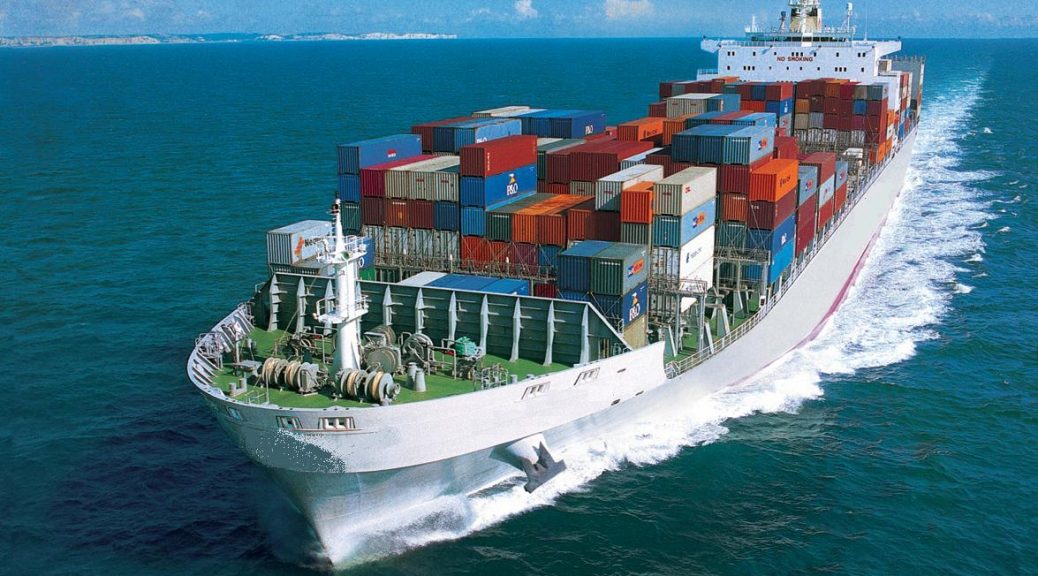Tehran-Seoul Trade Set to Reach New High

EghtesadOnline: South Korea was Iran's fourth biggest export destination (after China, Iraq, the UAE) and also the fourth biggest exporter to Iran (after China, the UAE and Turkey) during the seven months to Oct. 22.
Iran exported $2.44 billion worth of commodities to South Korea during the seven months since the beginning of the current Iranian year, registering a remarkable increase of 25.13% compared to last year's corresponding period, according to data from the Islamic Republic of Iran Customs Administration.
Imports witnessed a 2.13% year-on-year decrease to stand at $1.84 billion.
Should the current trend in bilateral trade continue, the two countries are set to see a record high of more than $7 billion by the yearend, according to Financial Tribune.
In the past fiscal year (March 2016-17), mutual trade totaled $6.33 billion reaching its highest level in 10 years. Iran's exports accounted for $2.87 billion of the sum, up by a staggering 230% YOY. Imports saw a 5.96% decline YOY.
Bilateral trade reached its lowest level of $3 billion during the 10 years ending in the fiscal March 2007-8.
Figures also indicate that Iran's exports to South Korea over the 10 years have been on an upward trend since March 2013-14.
A downtrend is detectable on the import front, as imports from South Korea have been decreasing since the fiscal 2015-16.
> Major Client for Iranian Oil
Iran is also a major oil exporter to South Korea, though international sanctions on Tehran over its nuclear program had sharply reduced trade.
South Korea’s imports of Iranian crude oil hit the highest level in six months in September, amid Iran’s push to regain its market share lost under sanctions.
The world’s fifth-biggest crude importer shipped in 1.83 million tons of crude oil from Iran in September, or 446,148 barrels per day. That is a 22.8% increase from nearly 1.5 million tons a year ago.
South Korea mainly buys ultra-light oil from Iran, also known as condensate.
South Korea’s oil imports from Iran jumped 43.1% to 14.03 million tons in Jan.-Sept. of 2017, or 377,059 bpd, from 9.81 million tons over the same period of last year.
> A Winner in Iran's Car Market
Iran is also a major market for South Korean cars. Official exports and production deals have driven Iran into the biggest growth market for South Korean cars in the region.
A report by the Islamic Republic of Iran Customs Administration in April suggested that South Korean cars were one of the biggest winners in the post-sanctions auto industry.
It said the two South Korean companies, Kia and Hyundai, claimed the largest share of Iran’s car import market.
Earlier this year, Hyundai began ramping up its local production as part of a joint venture with Kerman Motor Group.
According to the marketing director of the local car company, the assembler is moving in top gear by producing a range of vehicles for the huge Iranian market.
“Following Kerman Motor’s success in assembling and selling Hyundai i10 and i20, and last year’s contract to assemble the Accent model, the Korean carmaker is eager to have a bigger footprint in Iran’s market,” Saman Firouzi said.
> Dominance Over Iran's Home Appliance Market
South Korean home appliances are ubiquitous in Iran. Samsung and LG Electronics lead Iran’s home appliance market.
While foreign products account for 65% of the domestic market, the two South Korean companies hold a 55% share.
Both companies are active in Iran through their representative companies.
Last month, Samsung Electronics’ marketing manager in Iran, Navid Ghanadan, announced that Samsung Electronics plans to produce the new generation of smart televisions in Iran.
Samsung’s largest sales center opened in central Tehran in February. The store located in the new Charsou Shopping Mall was set up over an area of 820 square meters–making it the biggest of its kind in the country.
> New Era of Relations Post Sanctions
South Korea's former president, Park Geun-hye, made a landmark visit to Iran–the first by a South Korean president–in May 2016, a few months after the implementation of Iran's nuclear deal.
“I believe Iran can become a land of opportunity for many South Korean firms,” Park told reporters on a plane back to Seoul.
“I will make efforts to create the second Middle East boom,” she was quoted by The Korea Times as saying.
During her visit, the two countries signed dozens of preliminary deals potentially worth tens of billions of dollars.
South Korea’s presidential office described the MoUs as the “biggest-ever economic accomplishment”.
Later in December 2016, Iran signed a $650-million contract with the world’s largest shipbuilding company Hyundai Heavy Industries Company for the South Korean firm to build four 14,400 TEU container ships and six 50,000 DWT product tankers.
Ahmad Shahbaz-Beigi, the deputy head of Islamic Republic of Iran Shipping Lines says the fleet capacity of the shipping company is expected to grow 50% in 2018 with the addition of 10 vessels it has ordered from Hyundai.
And in August 2017, Iran signed its biggest credit line deal in recent years with South Korea’s Eximbank. The deal envisages as much as €8 billion in loans provided by South Korean companies to finance various projects in Iran.
The first new vessels are scheduled to be imported during the first three months of 2018.


